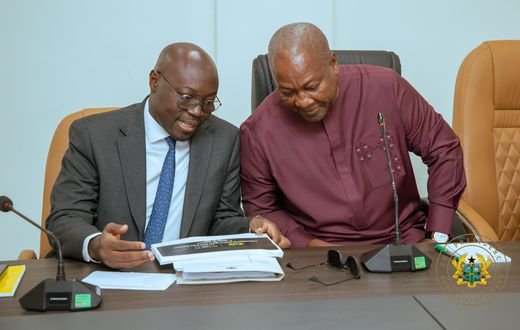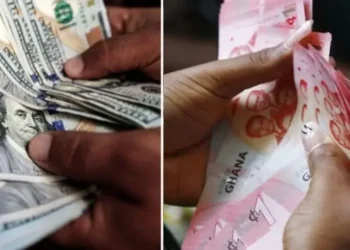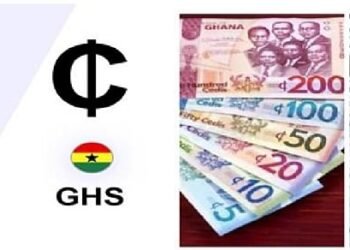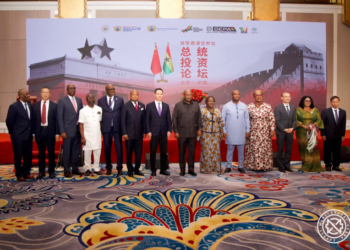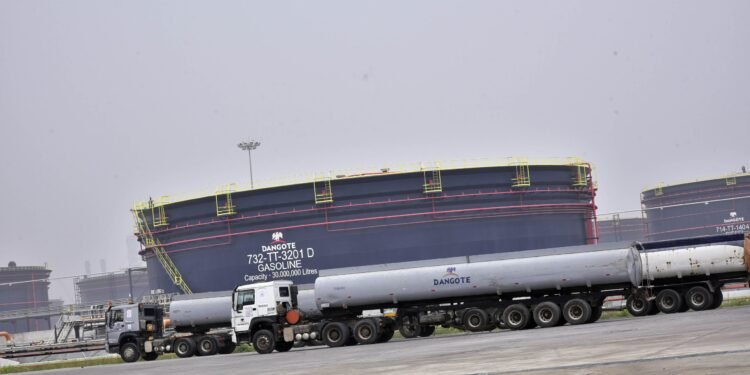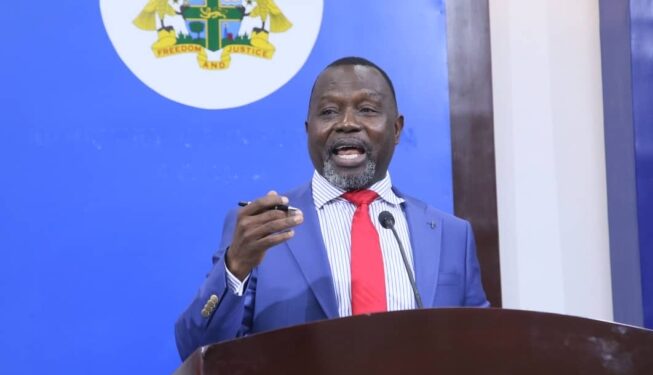Ghana’s fiscal management continues to show great strength and discipline, as the government’s overall budget deficit stood at 1.4% of Gross Domestic Product (GDP) for the first seven months of 2025, significantly below the target of 2.7% of GDP.
According to the Bank of Ghana’s latest fiscal update, the government recorded a total deficit of GH¢19.7 billion on a cash basis, well beneath the expected GH¢37.8 billion.
This remarkable performance highlights the government’s ongoing commitment to fiscal consolidation and prudent expenditure management under the 2025 Budget. The results reflect improving revenue mobilization and a tight rein on public spending, signaling positive progress toward restoring macroeconomic stability after years of fiscal strain.
The fiscal performance was further boosted by a primary balance surplus, a key indicator of the government’s ability to pay its debts without borrowing. The data revealed a primary surplus of 0.7% of GDP on a cash basis, a sharp turnaround from the targeted deficit of 1.0%.
Even more impressively, the primary balance on a commitment basis, which serves as Ghana’s fiscal anchor, showed a surplus of 1.0% of GDP against a target of 0.5%. This indicates that the government’s fiscal operations were not only more efficient than anticipated but also aligned with its medium-term fiscal consolidation goals.
Economists have described this development as a “credible signal” to both investors and international partners that Ghana’s fiscal reforms are yielding results. The surplus positions the country favorably as it continues implementing the International Monetary Fund (IMF) programme designed to restore debt sustainability and economic growth.
Domestic Financing Takes the Lead
The report further showed that the overall deficit was financed through a mix of domestic and external sources. On a net basis, the government borrowed GH¢14.8 billion from domestic sources, while net foreign financing amounted to GH¢4.9 billion.
Analysts note that the reliance on domestic borrowing indicates growing investor confidence in local financial instruments, especially Treasury bills and bonds, which have seen strong demand in recent months. However, they also warn of the need to manage domestic borrowing carefully to prevent crowding out private sector access to credit.
Still, the controlled financing approach marks a shift toward more sustainable debt management, balancing between local participation and external inflows.
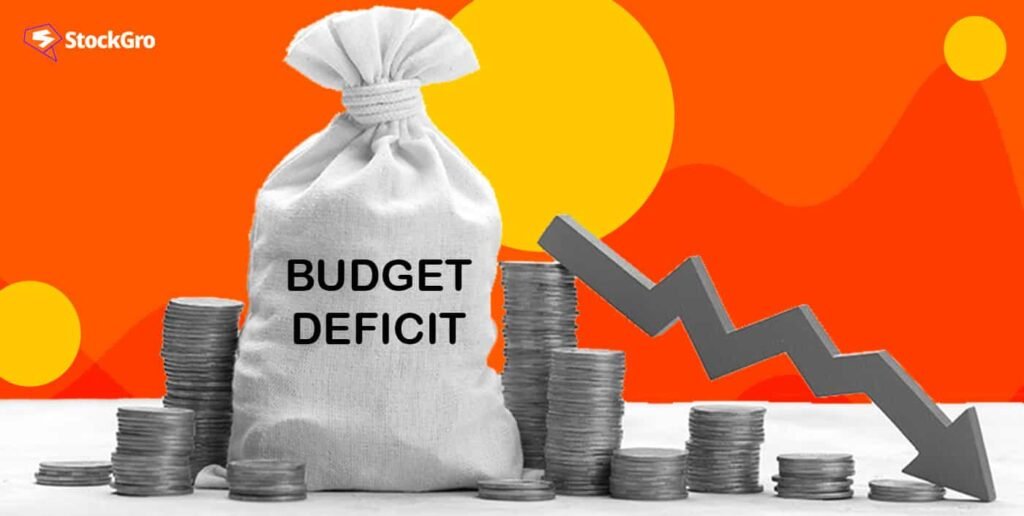
Budgetary Targets and Fiscal Anchor Hold Firm
The government’s strong fiscal outturn for the period reinforces its budgetary consolidation objective for 2025. Both the commitment and cash-based deficit figures came in lower than their respective targets, demonstrating that fiscal policies are being implemented with precision and accountability.
The Ministry of Finance has consistently emphasized that its strategy focuses on reducing the fiscal deficit, stabilizing inflation, and restoring confidence in the economy. By maintaining surpluses in the primary balance, Ghana enhances its ability to manage debt service obligations and reduce the pace of public debt accumulation.
Meanwhile, financial analysts and development partners have welcomed the figures, noting that they reflect stronger macroeconomic fundamentals and a more disciplined fiscal posture. The Bank of Ghana’s report aligns with recent economic assessments showing declining inflation, a stronger cedi, and increased investor optimism in the Ghanaian market.
In the intervening time, the government’s fiscal prudence is beginning to yield visible outcomes. Achieving a deficit below target while maintaining a primary surplus is a clear indication that Ghana’s economic reforms are taking root.
Experts further predict that if the trend continues through the end of 2025, Ghana could see improved credit ratings and stronger foreign investor confidence, key ingredients for long-term growth.
Outlook
The outlook for Ghana’s fiscal position remains positive. The lower-than-expected deficit provides a cushion for future fiscal adjustments, while the surpluses offer a pathway to debt sustainability and economic resilience.
The government’s next challenge will be to sustain the momentum by strengthening domestic revenue mobilization, improving expenditure efficiency, and expanding the tax base to fund critical infrastructure and social development projects.
As Ghana moves towards the end of the final quarter of 2025, its ability to maintain fiscal discipline amid evolving global economic conditions will be crucial. Yet, the latest data offer clear evidence that the country is back on a path of stability, anchored by sound fiscal management and renewed confidence in its economic future.
READ ALSO: Yields Climb as Treasury Struggles to Hit Targets in Latest Auction



